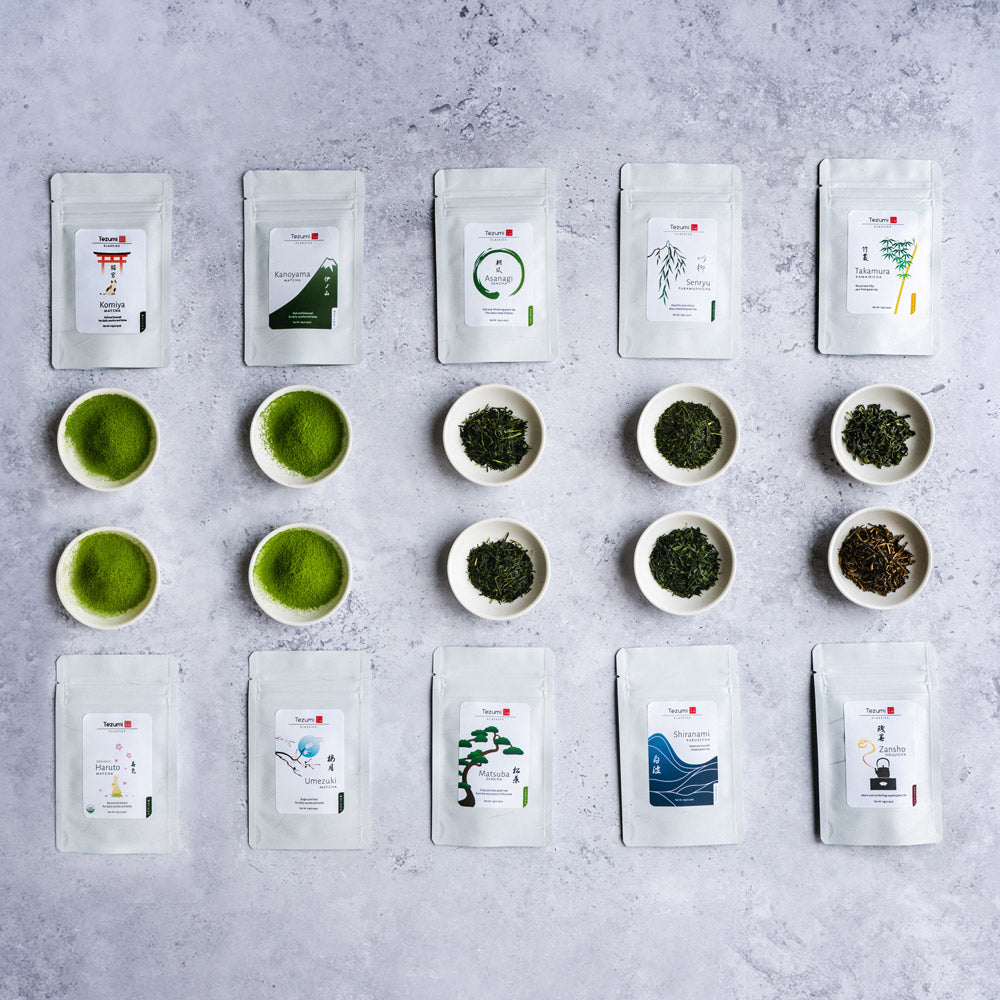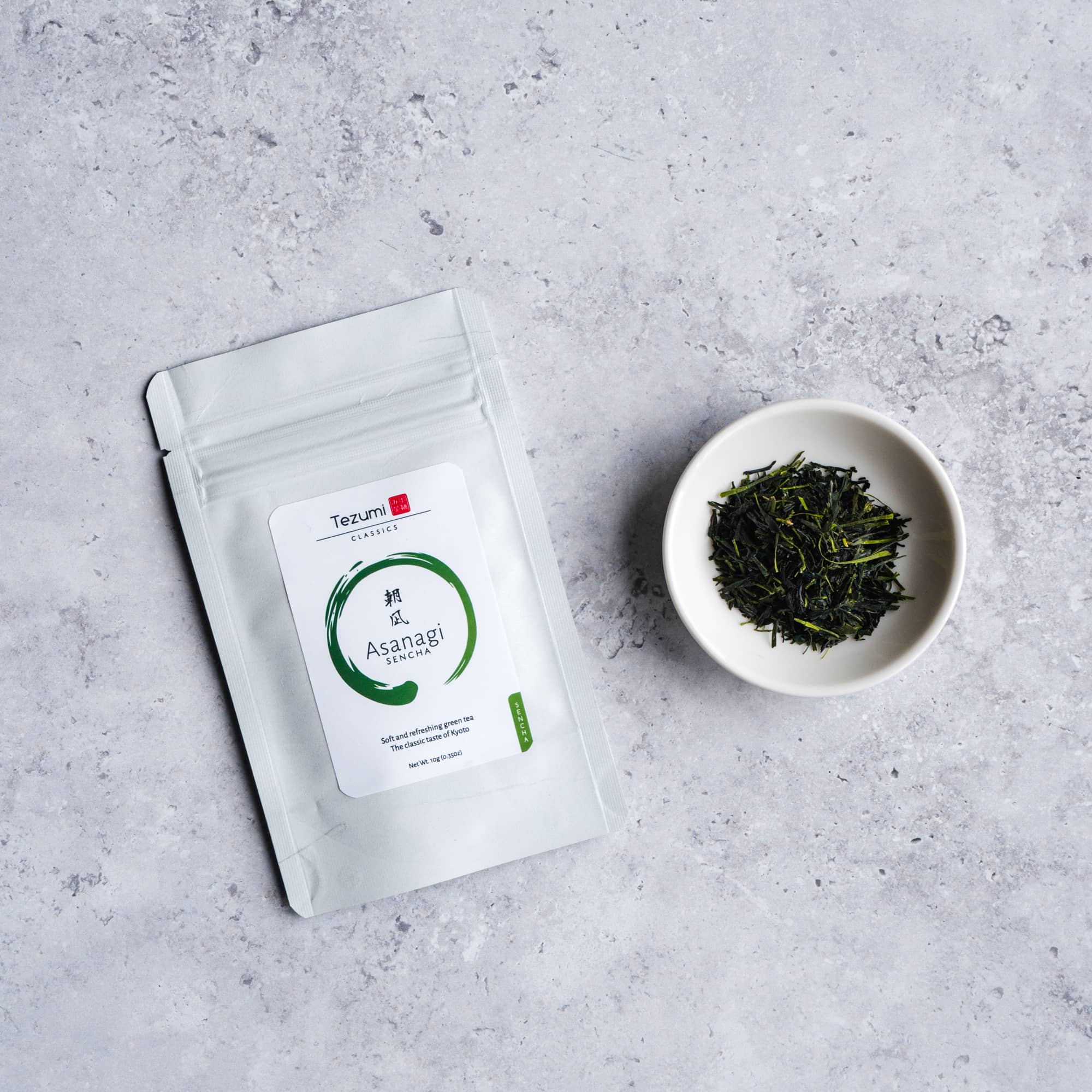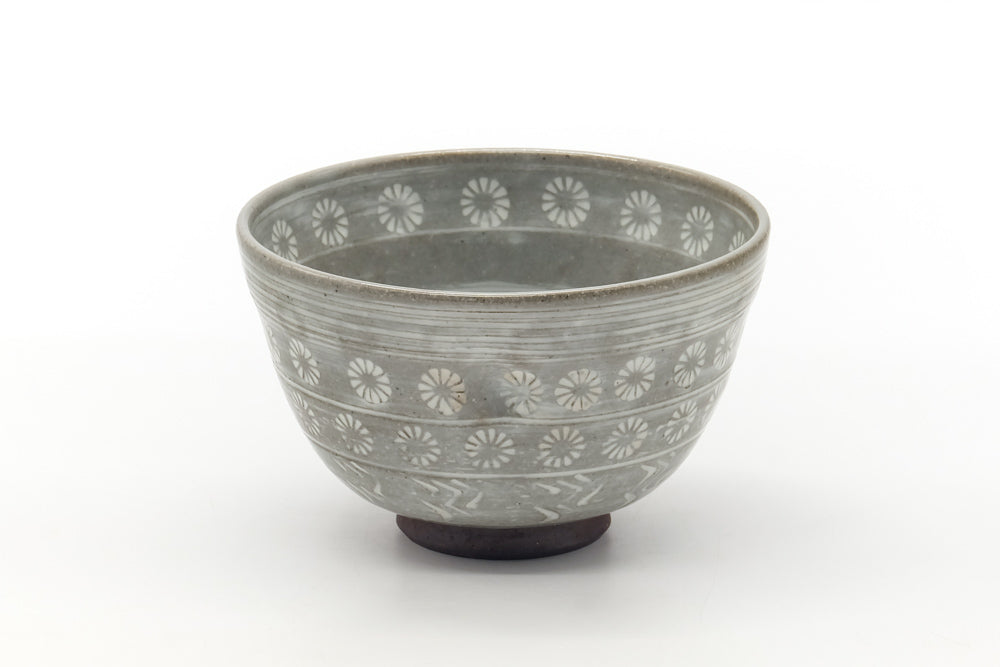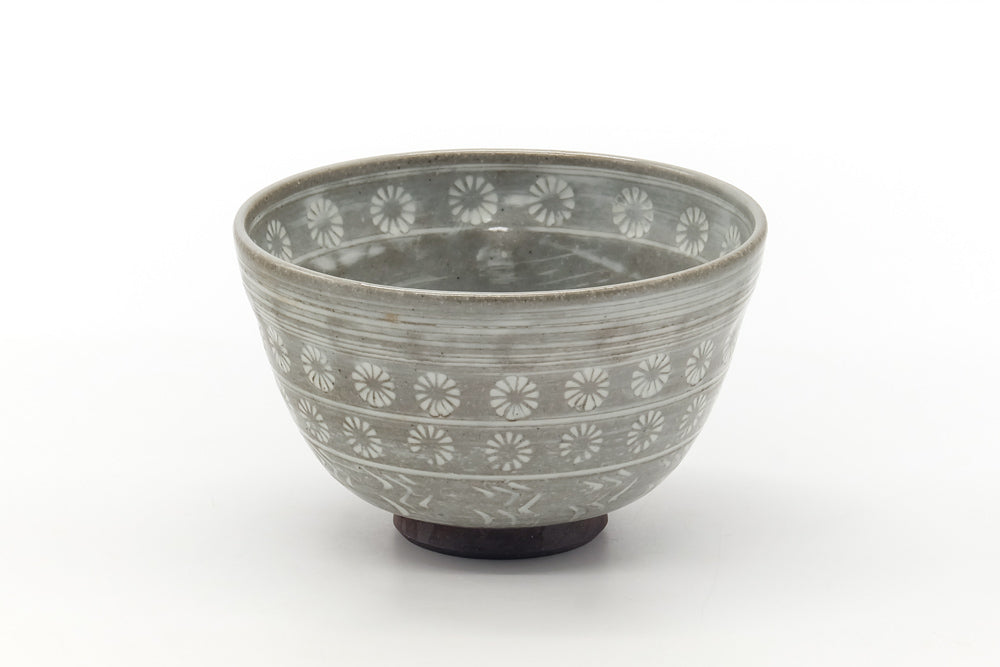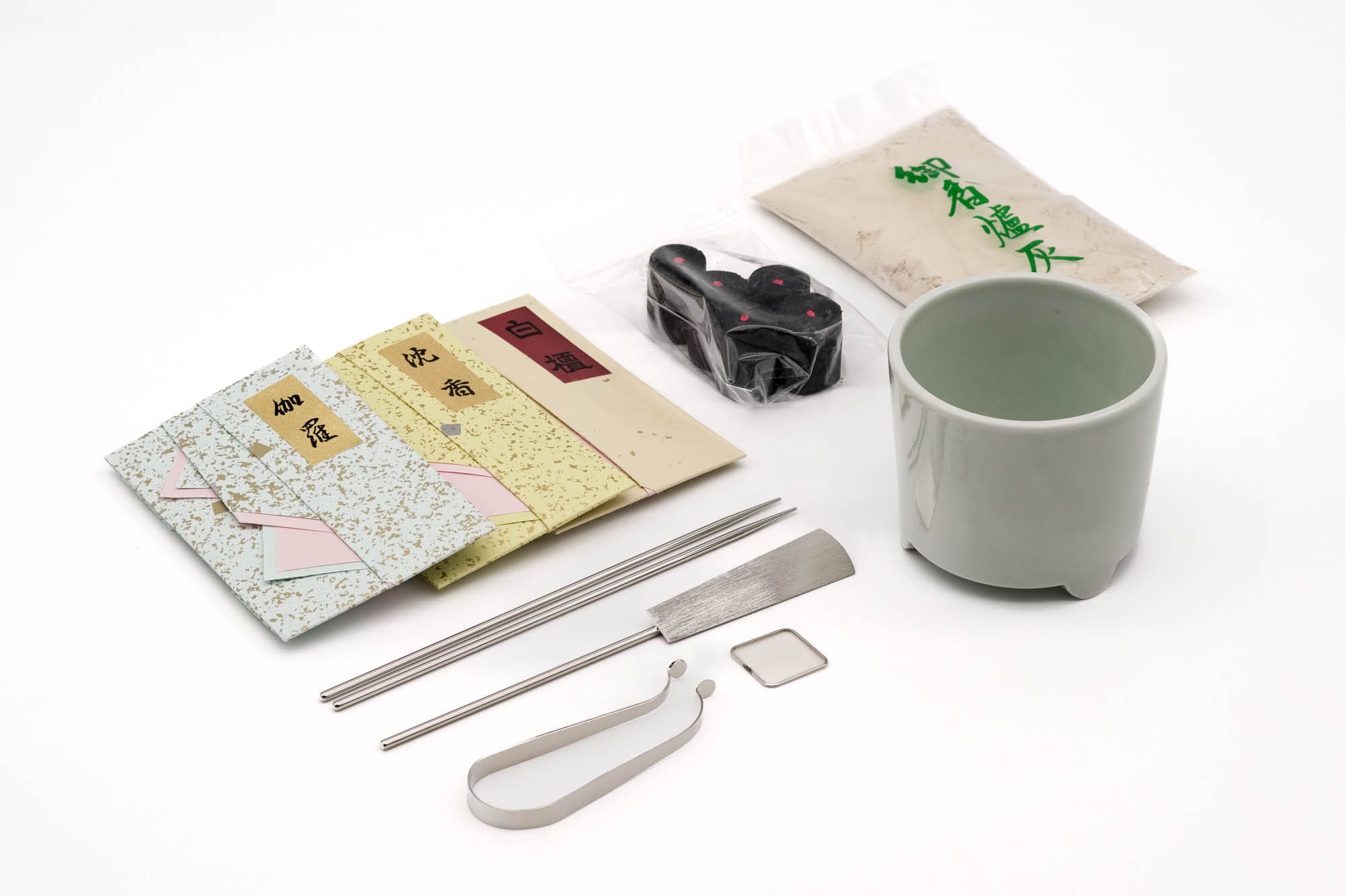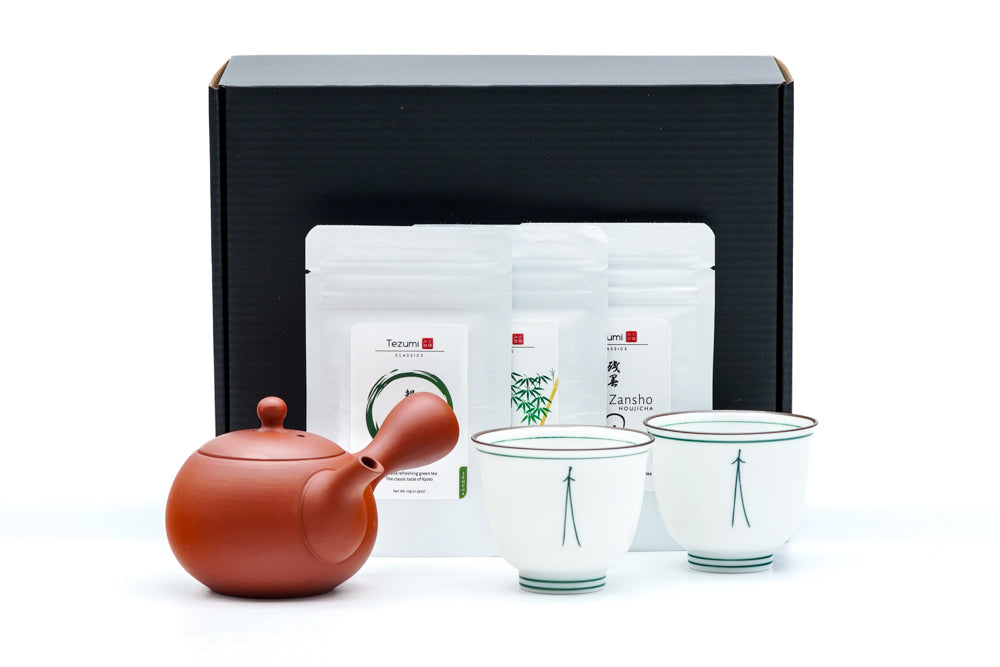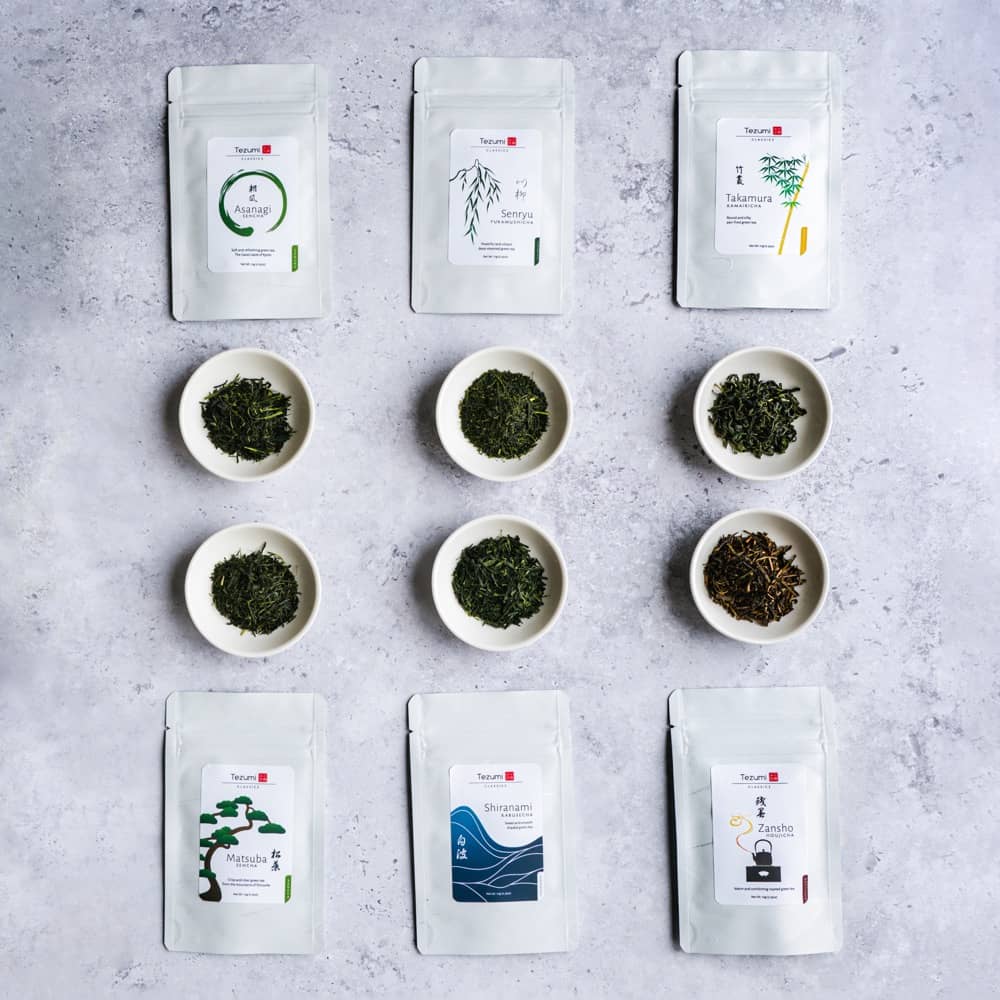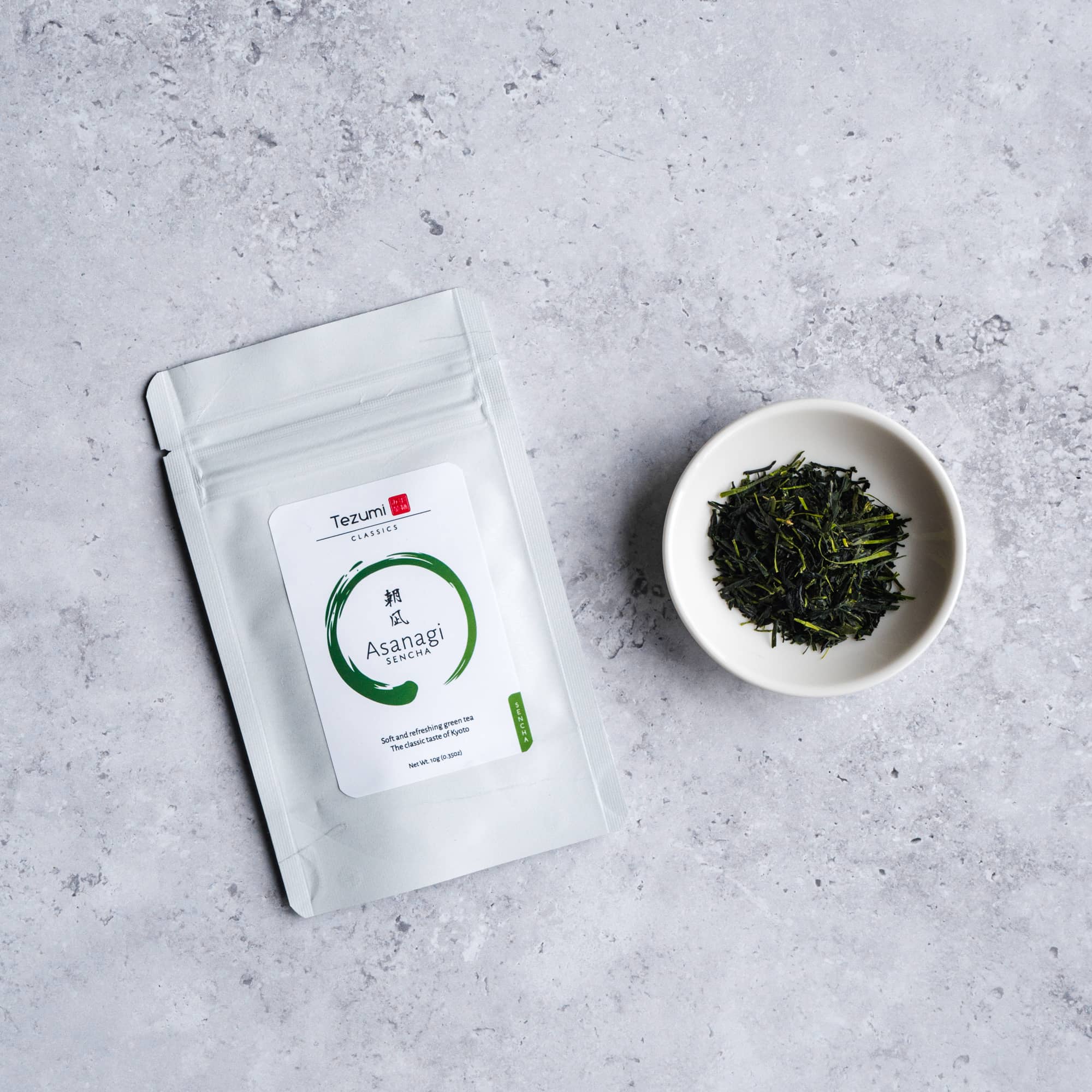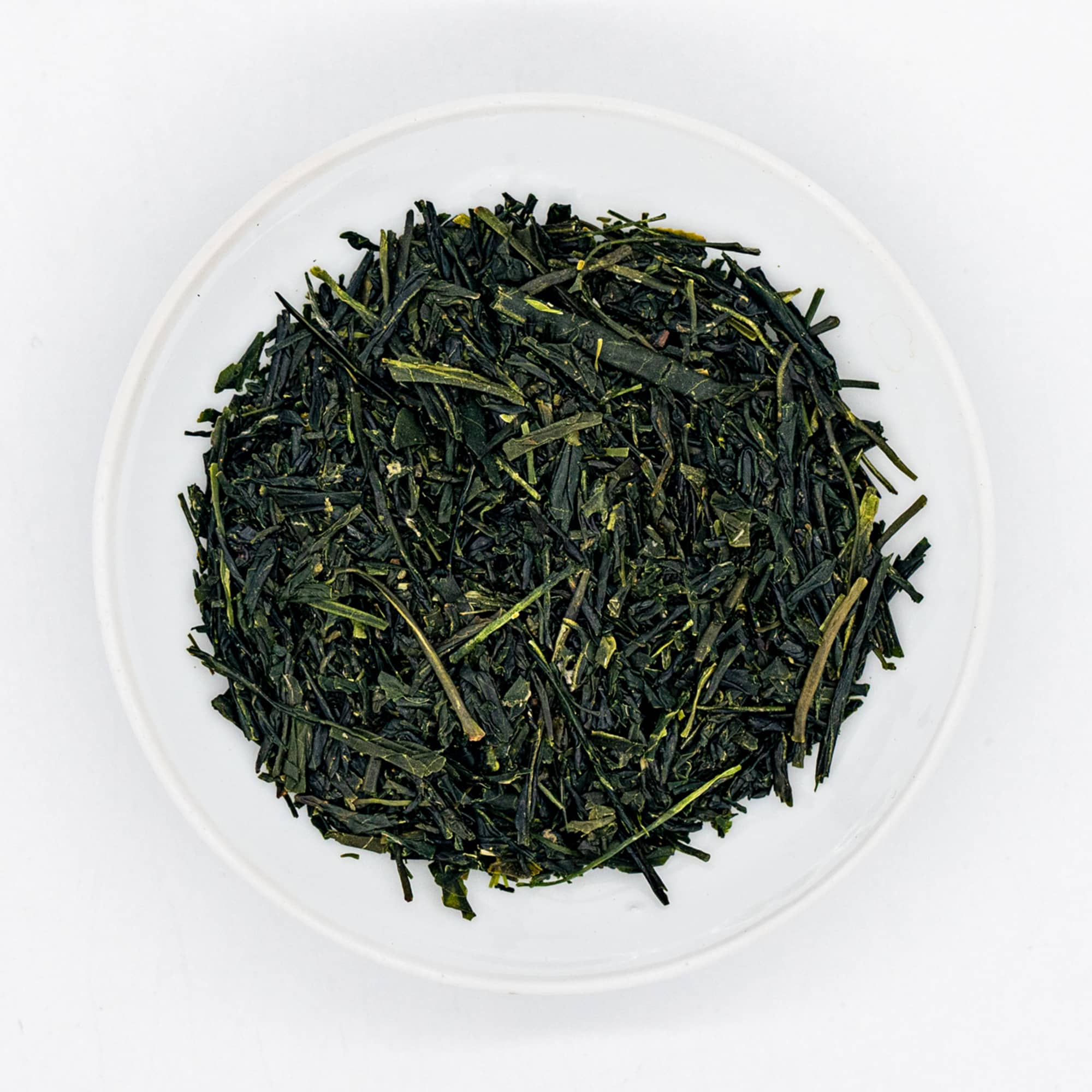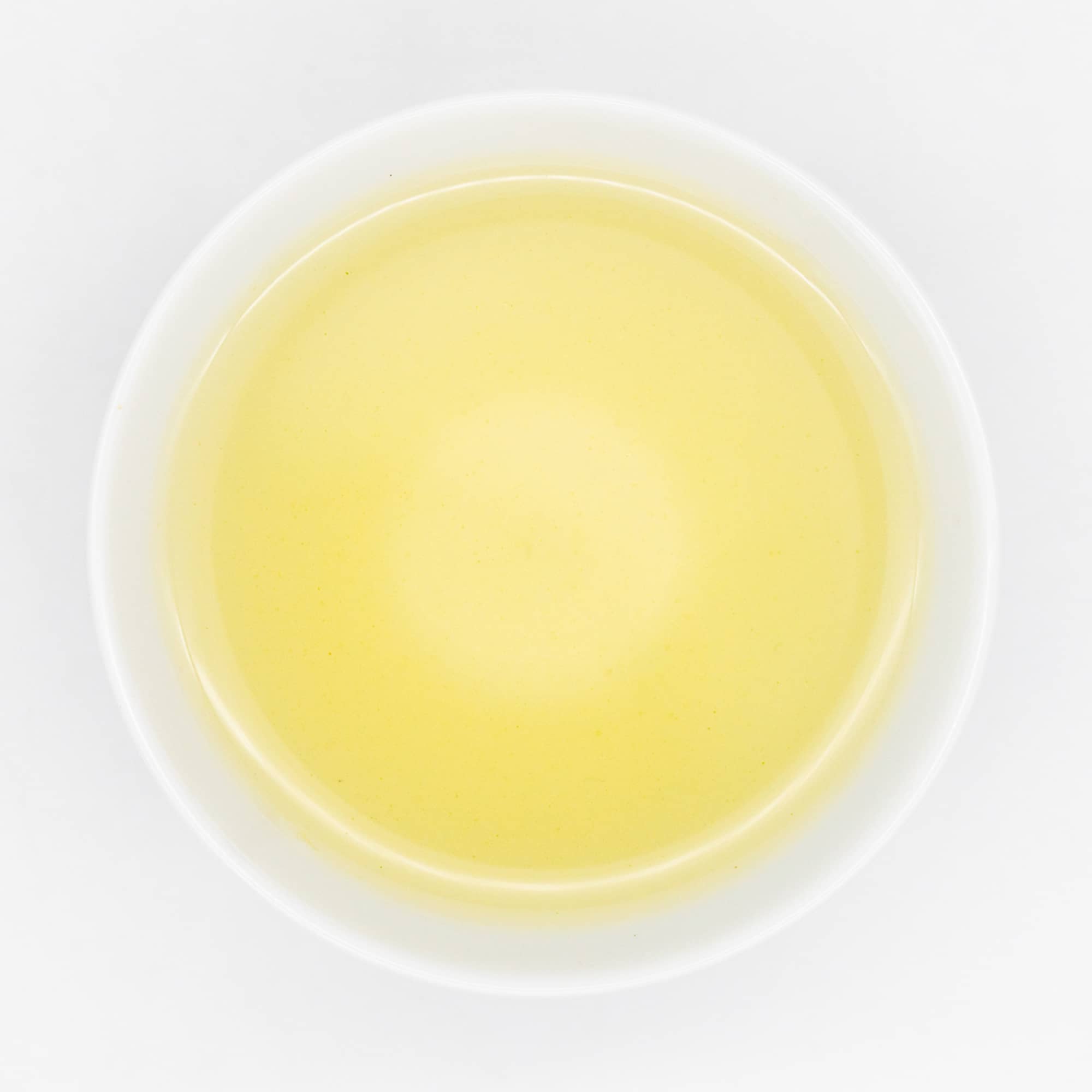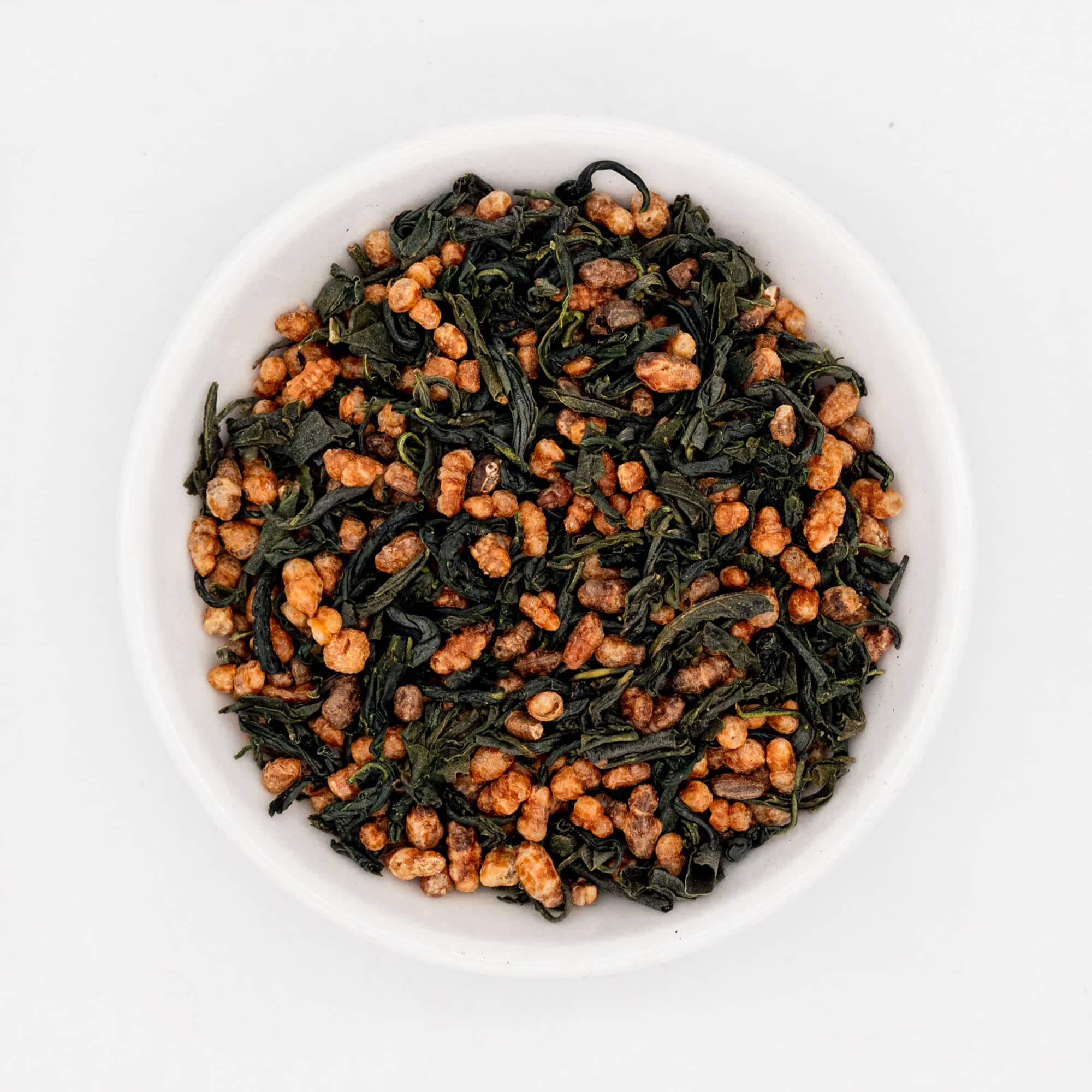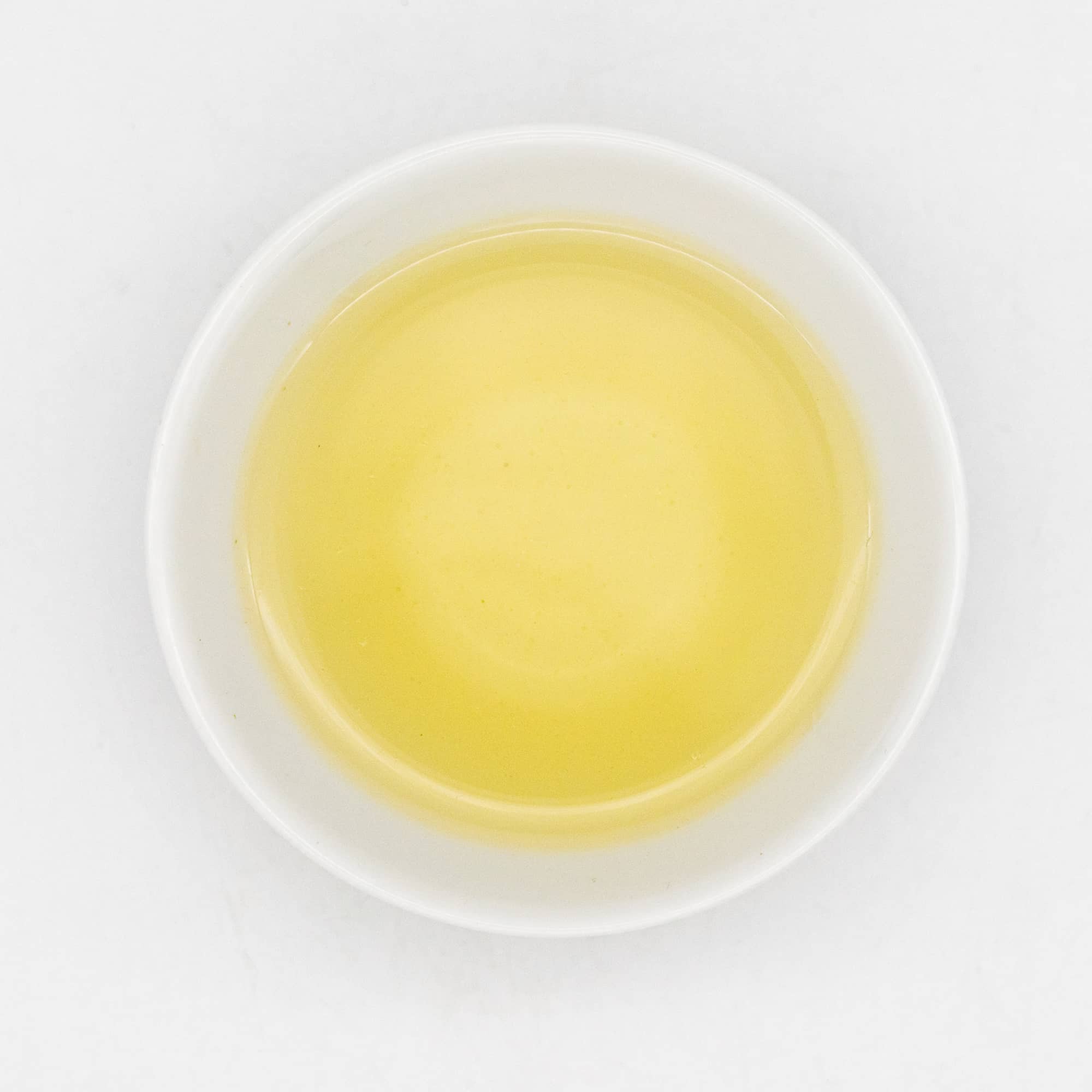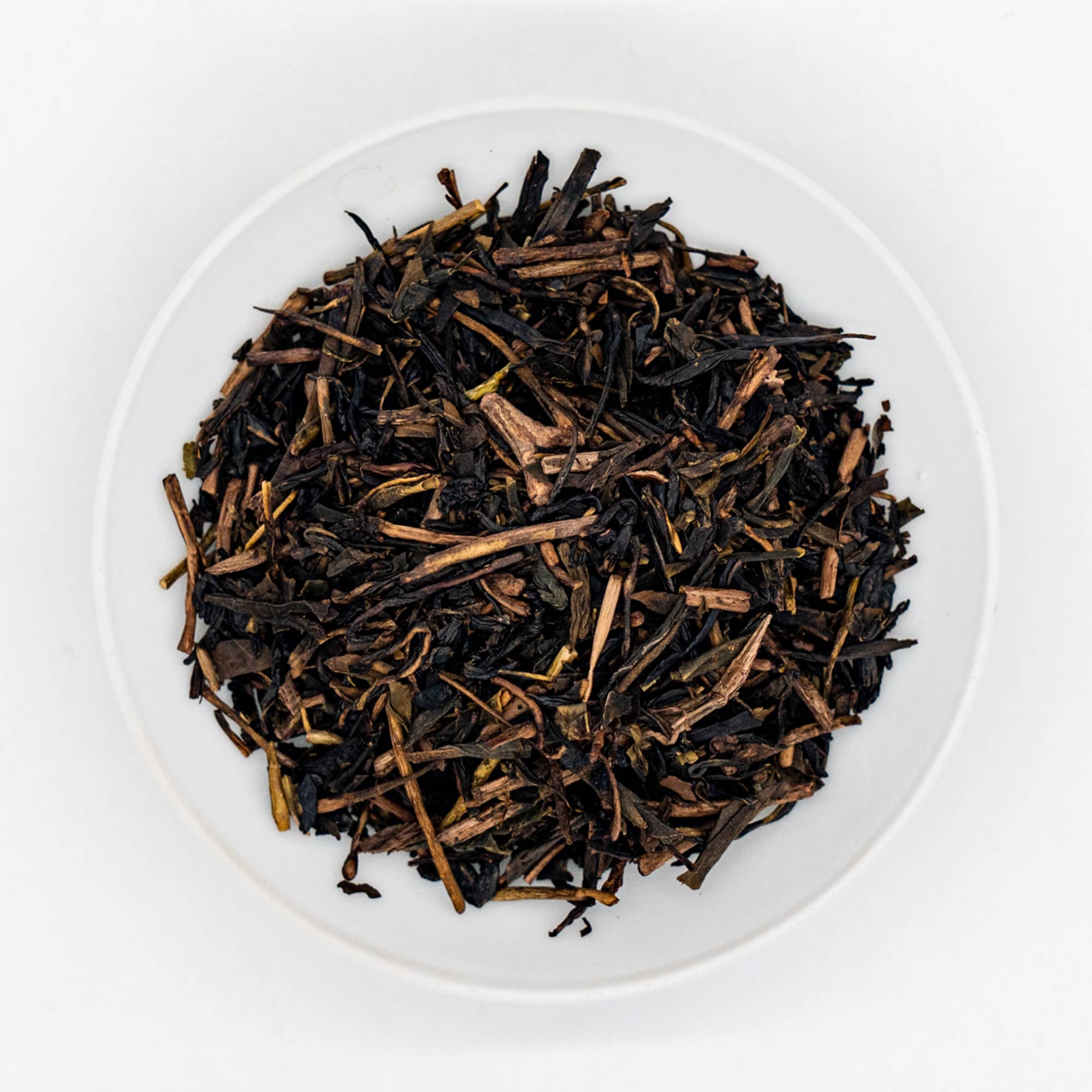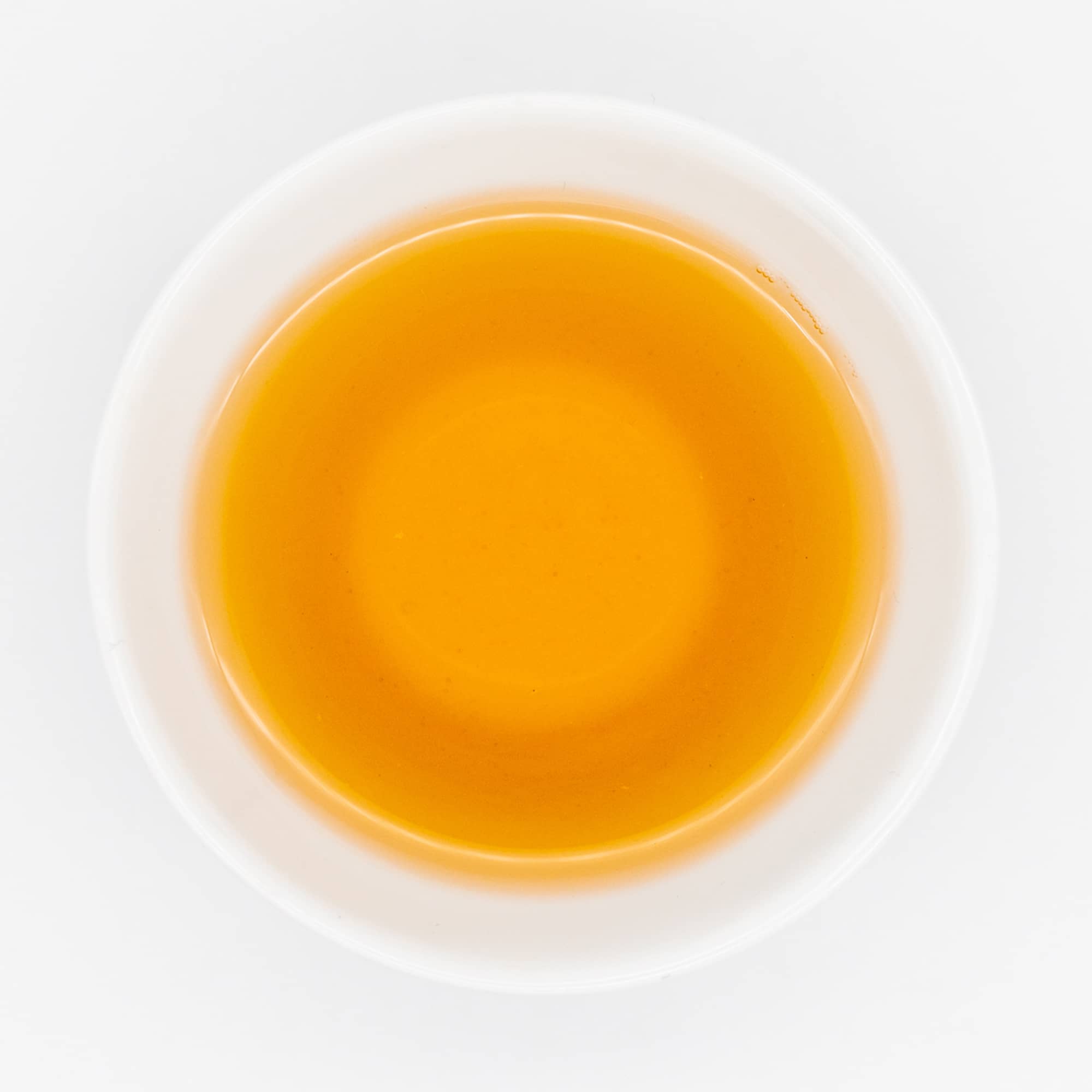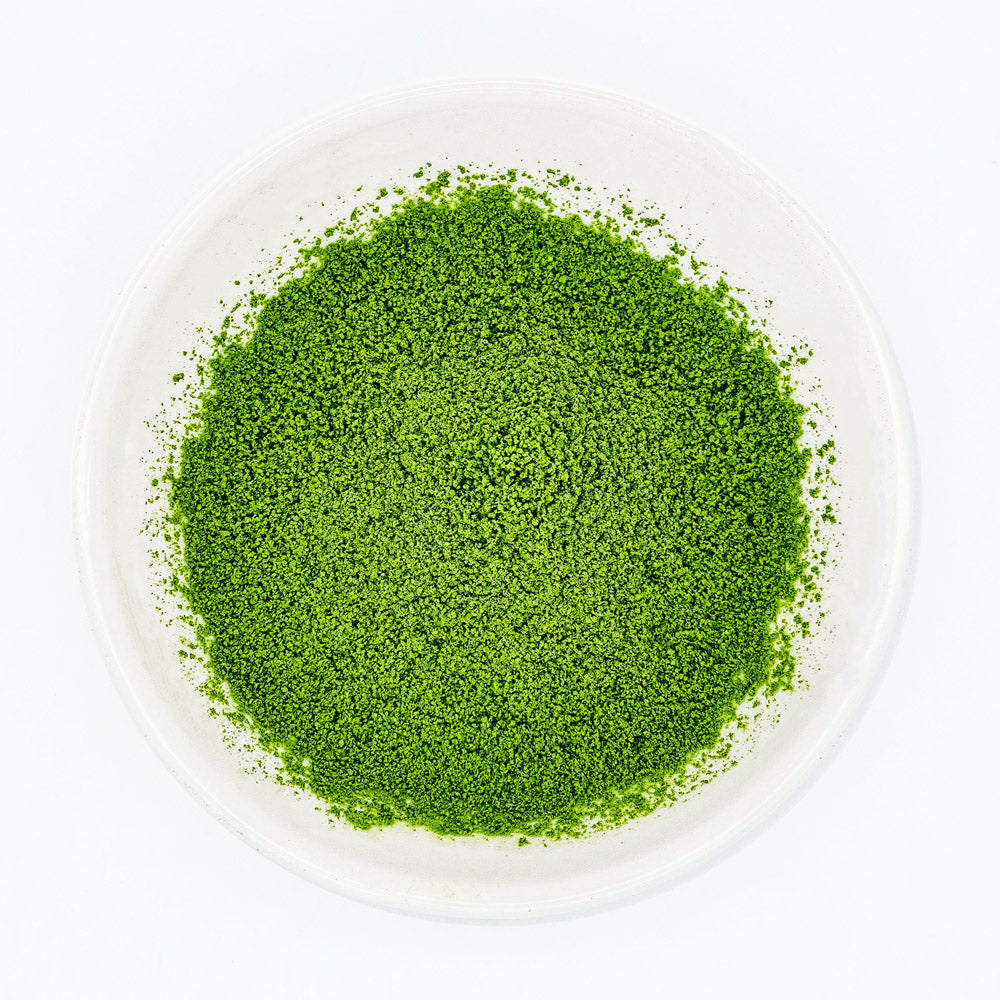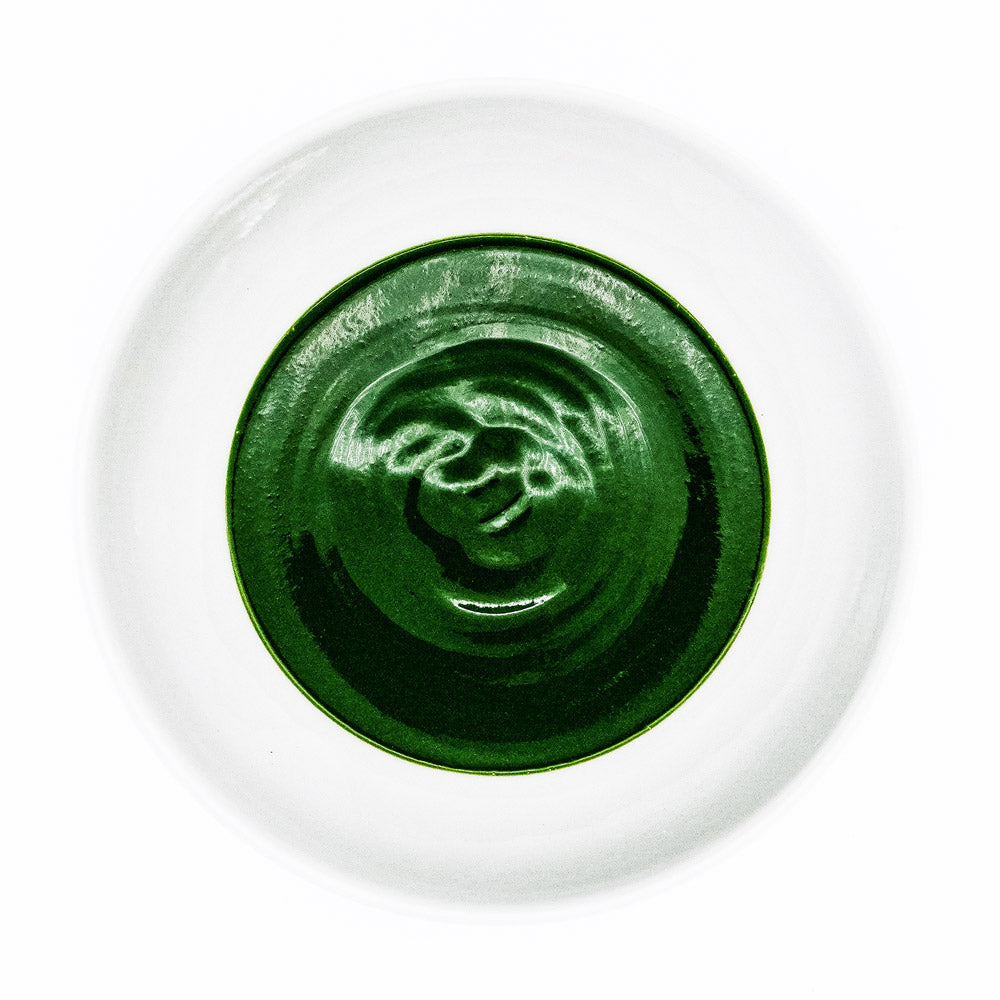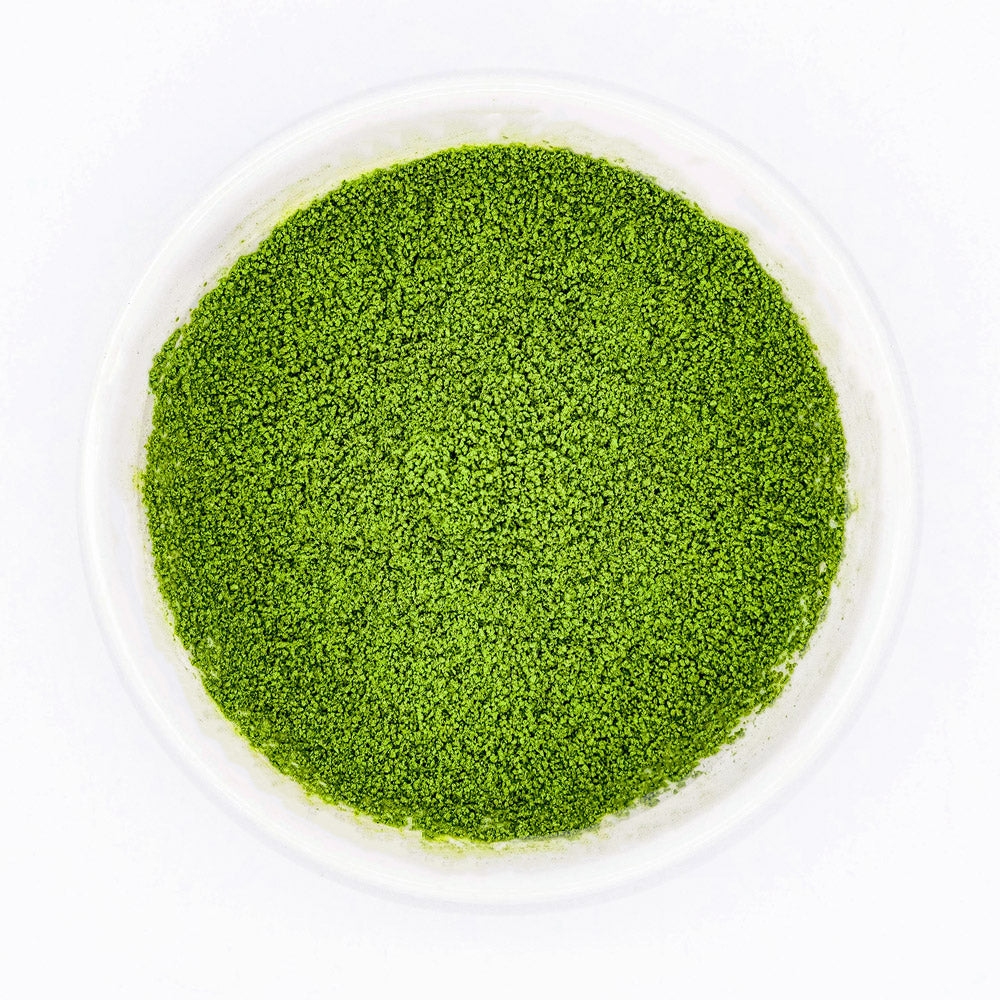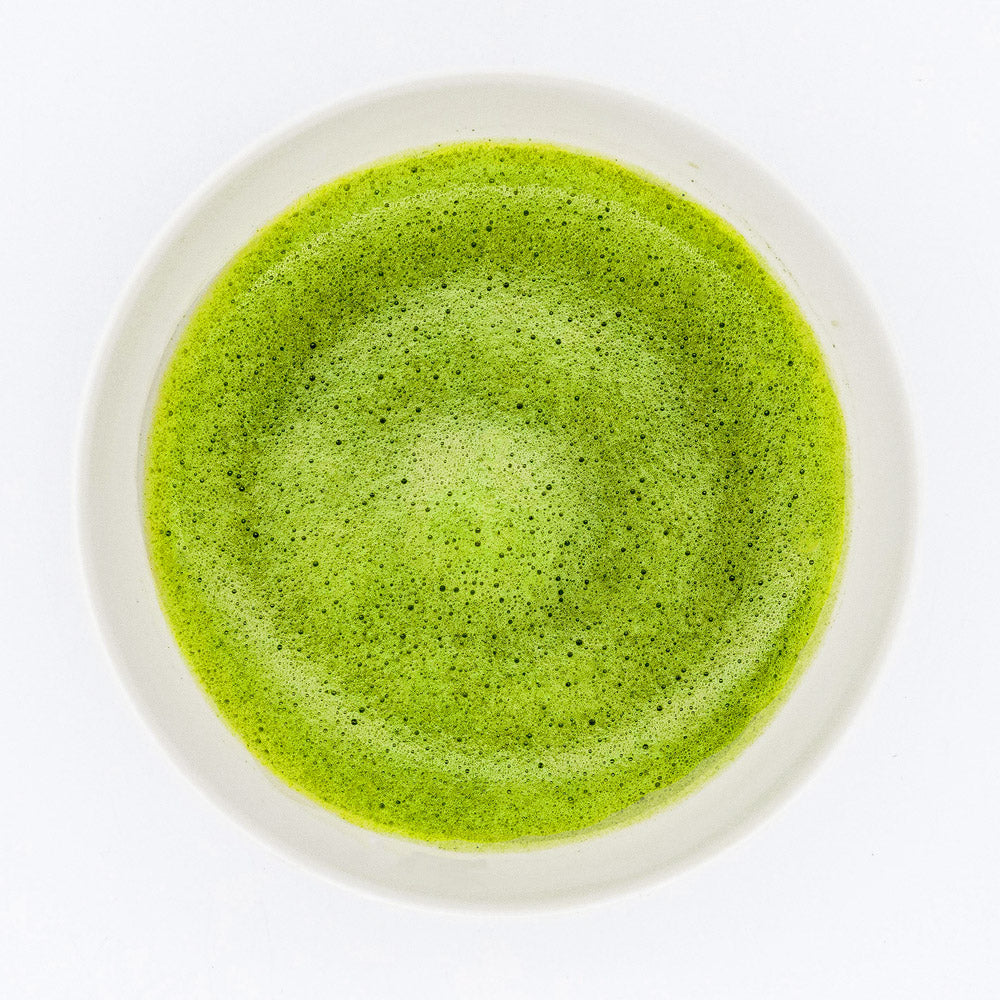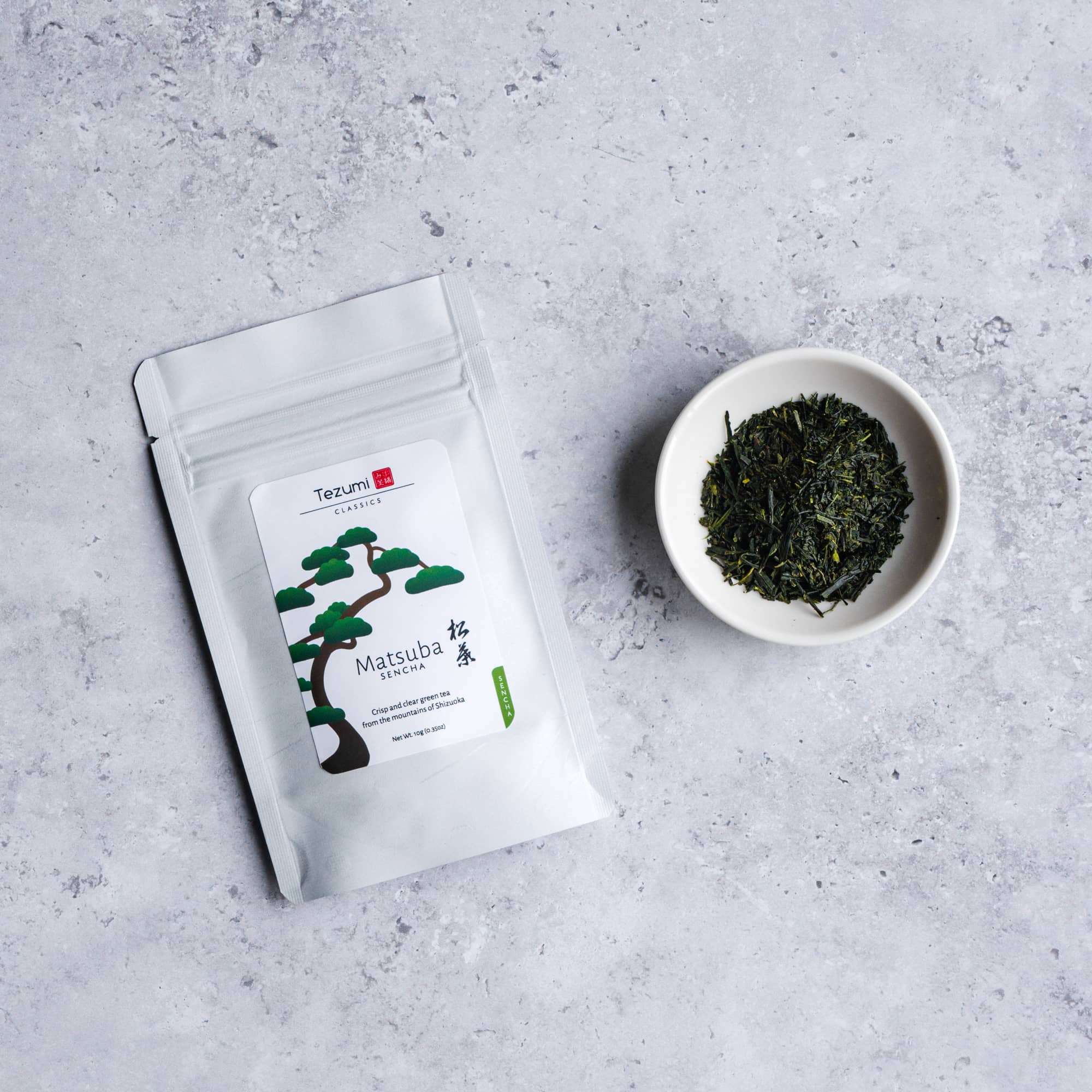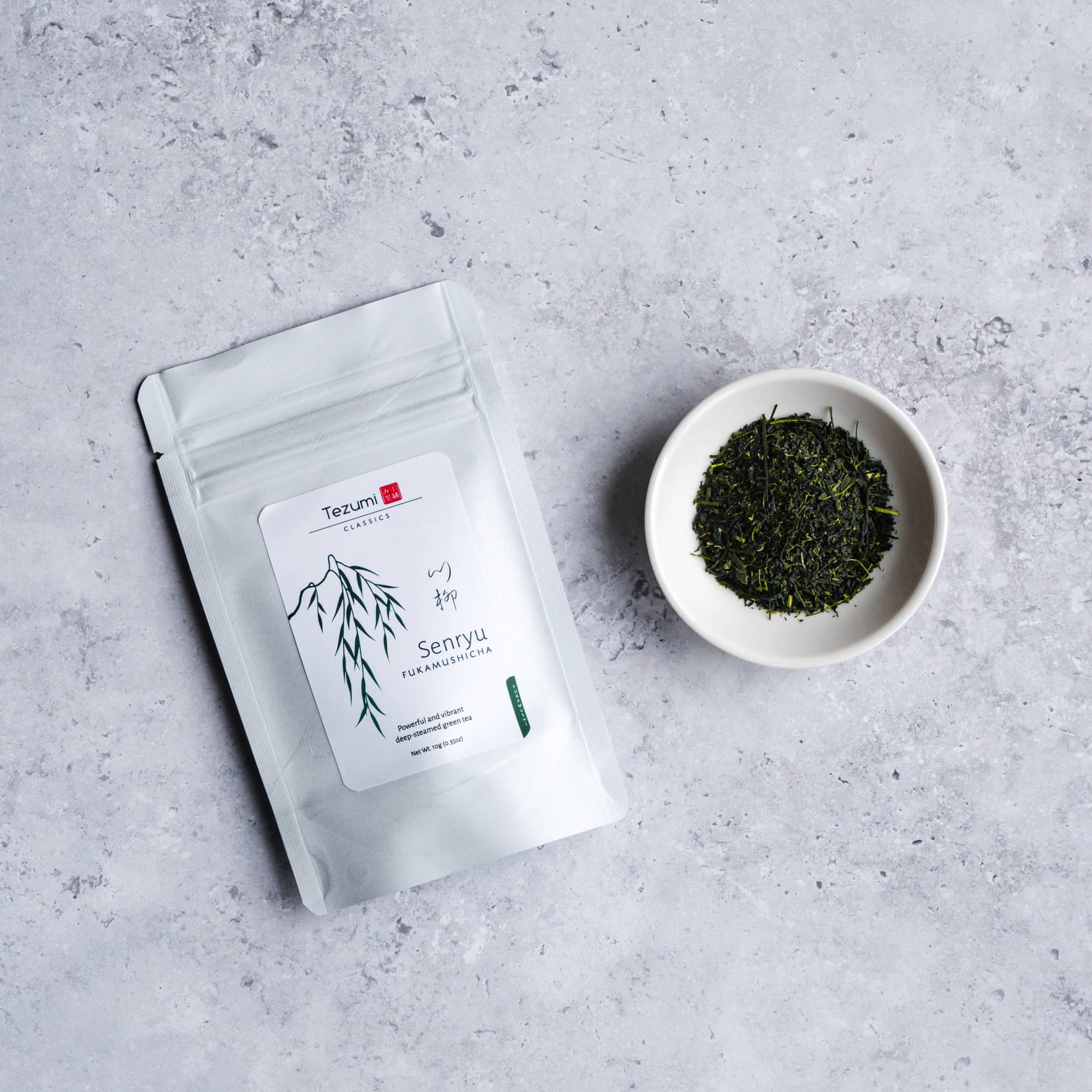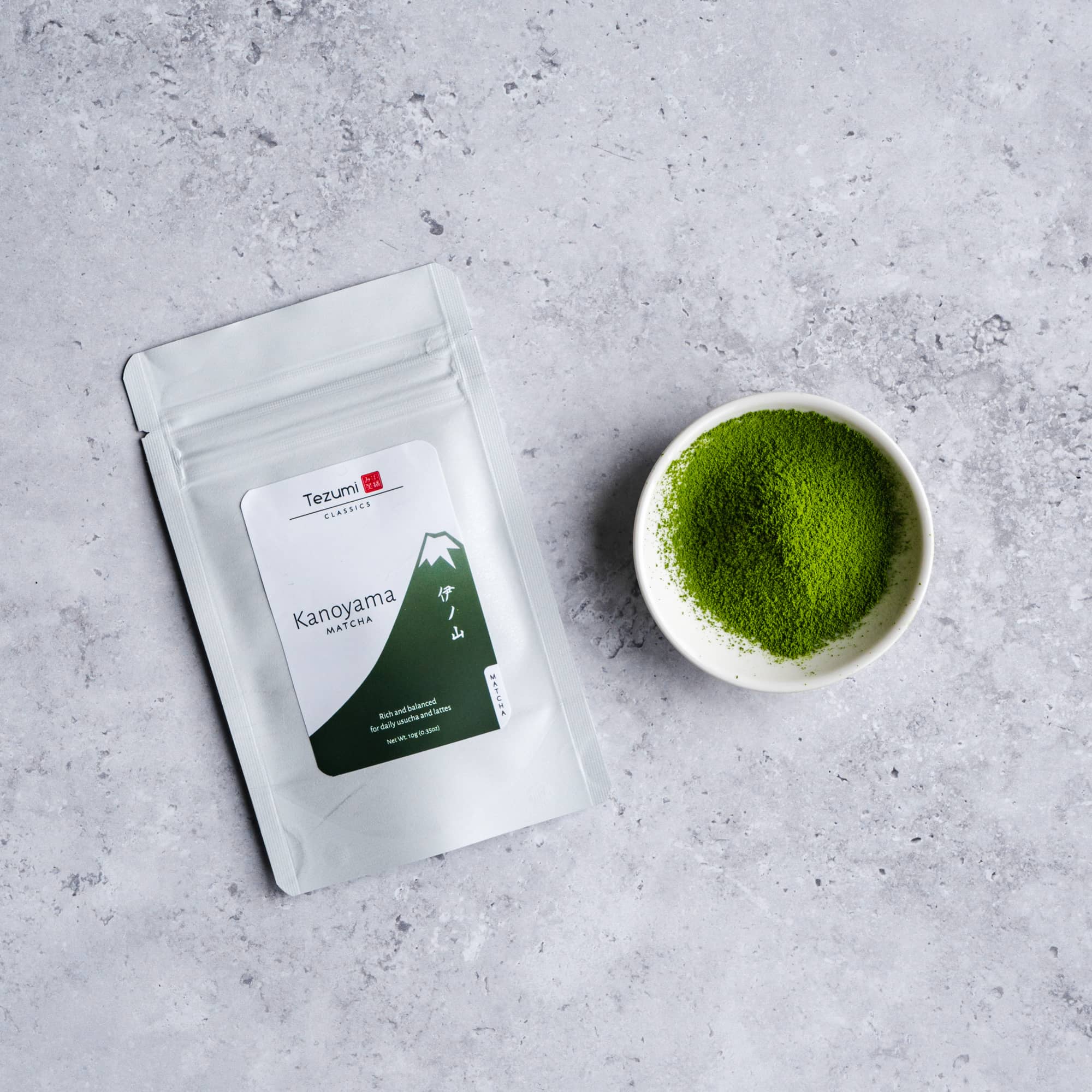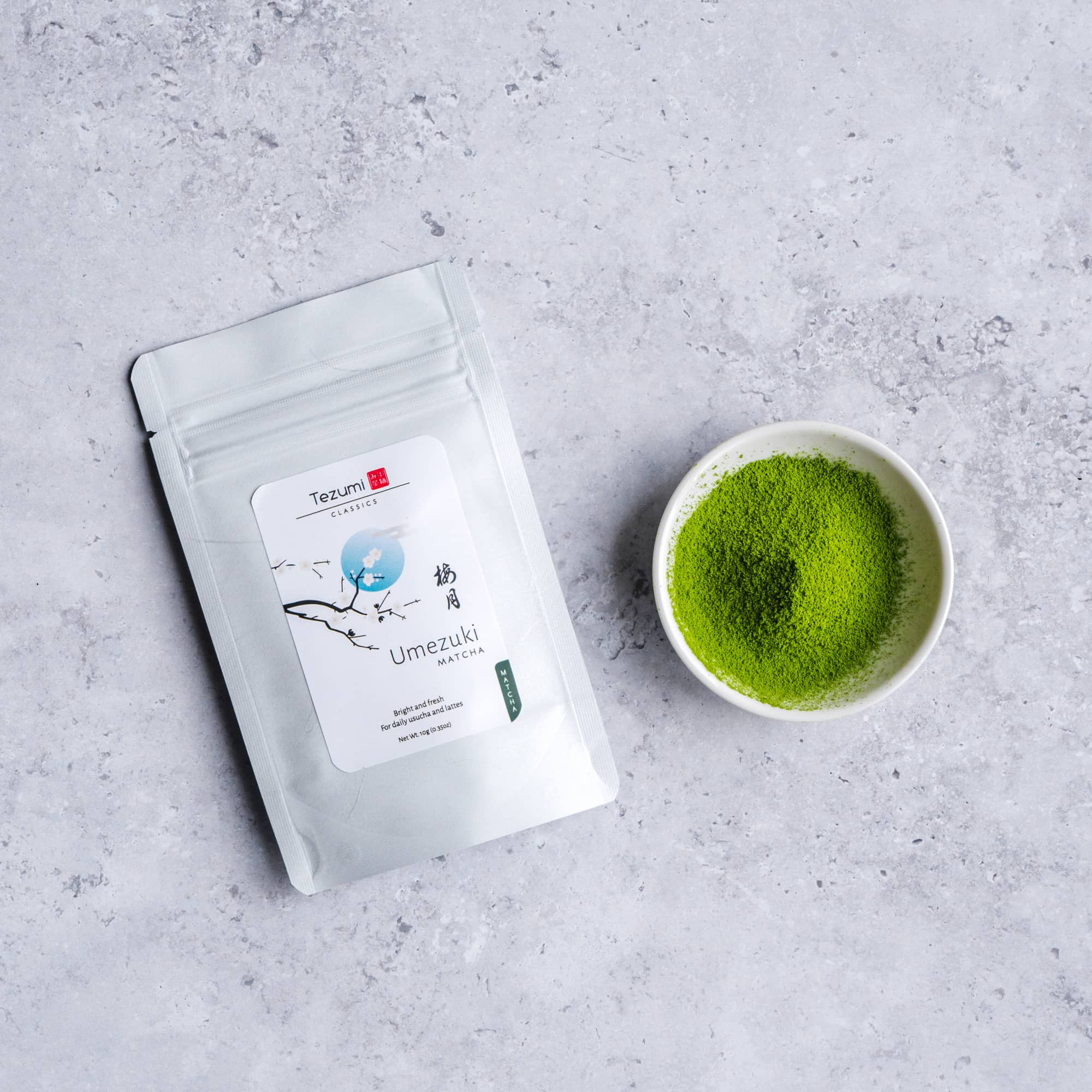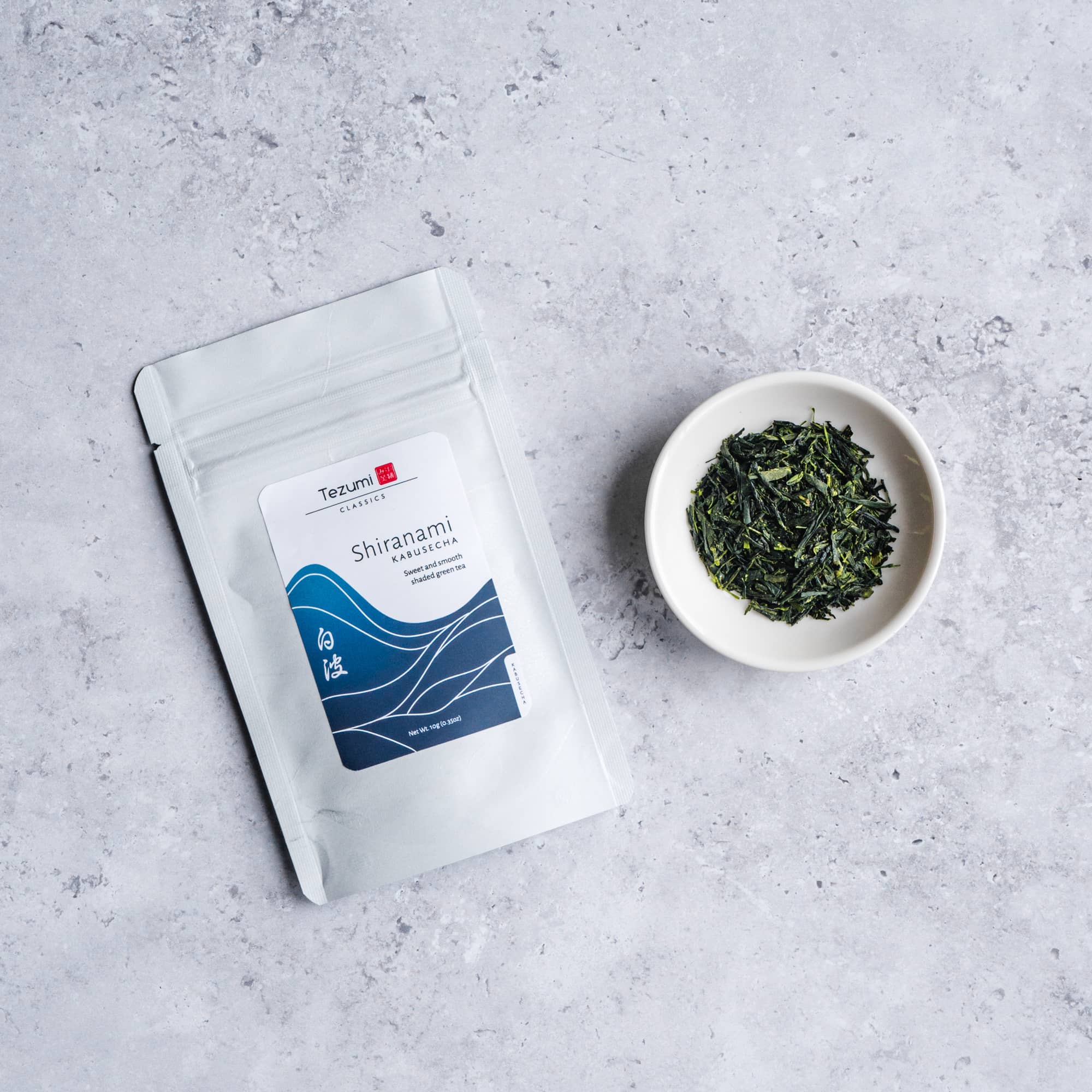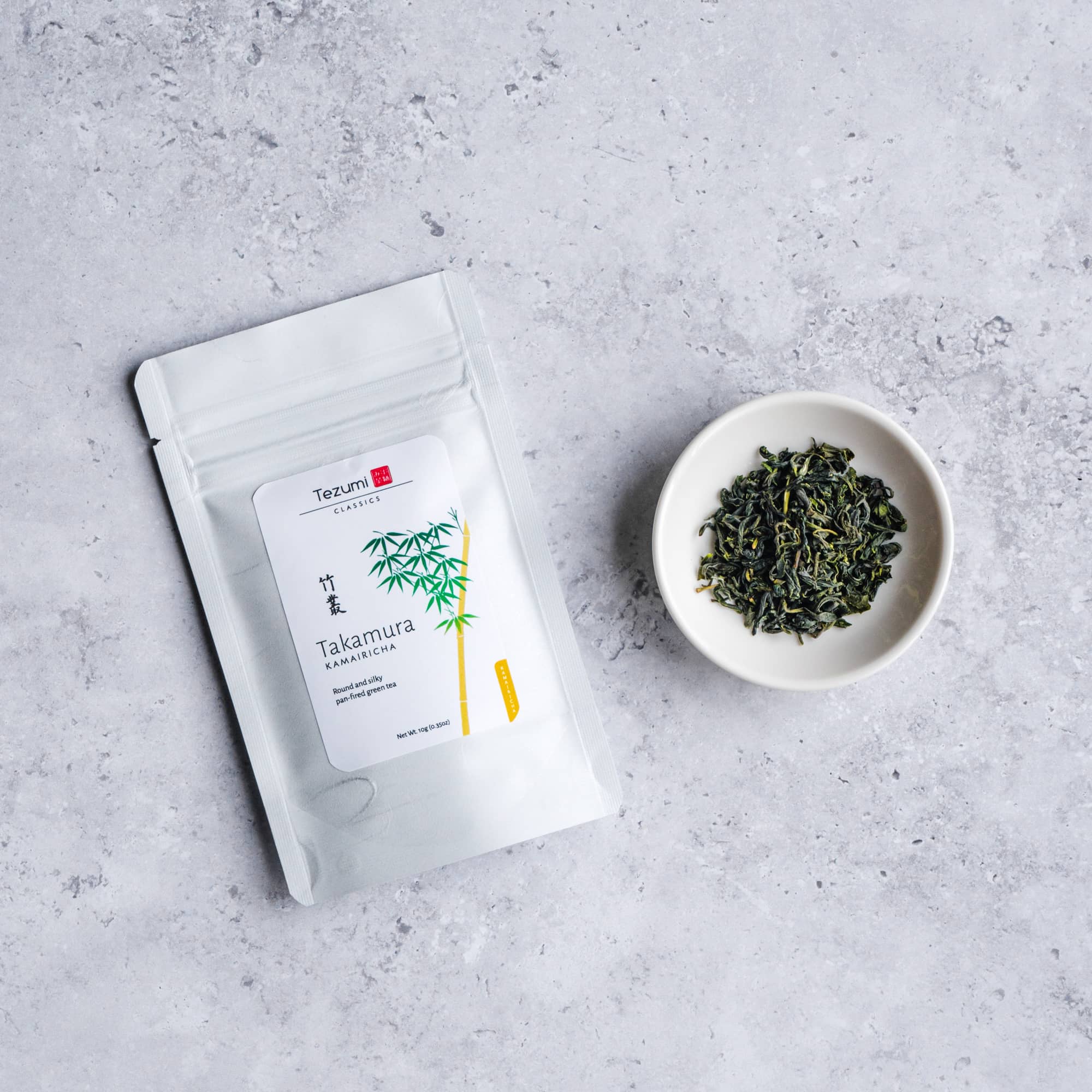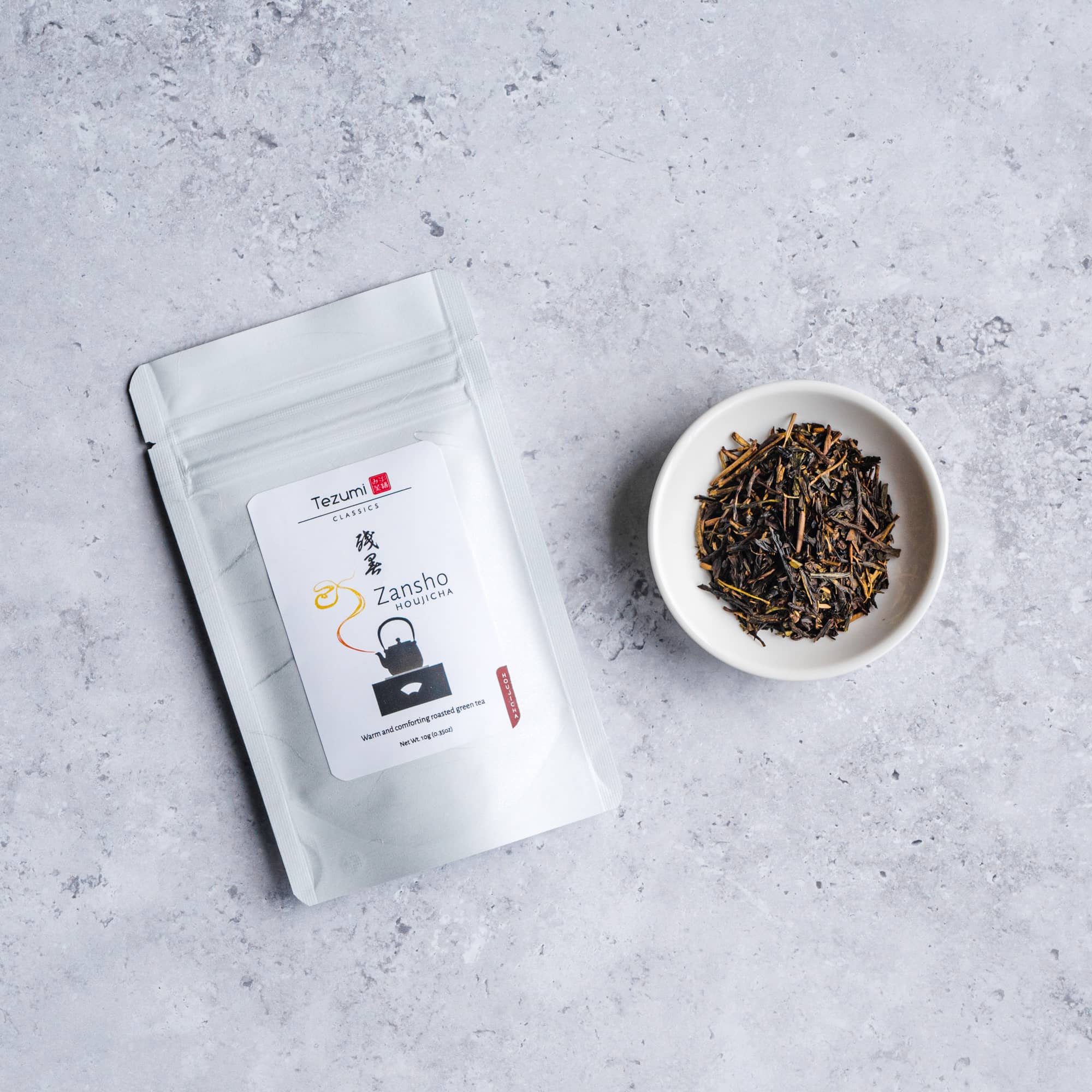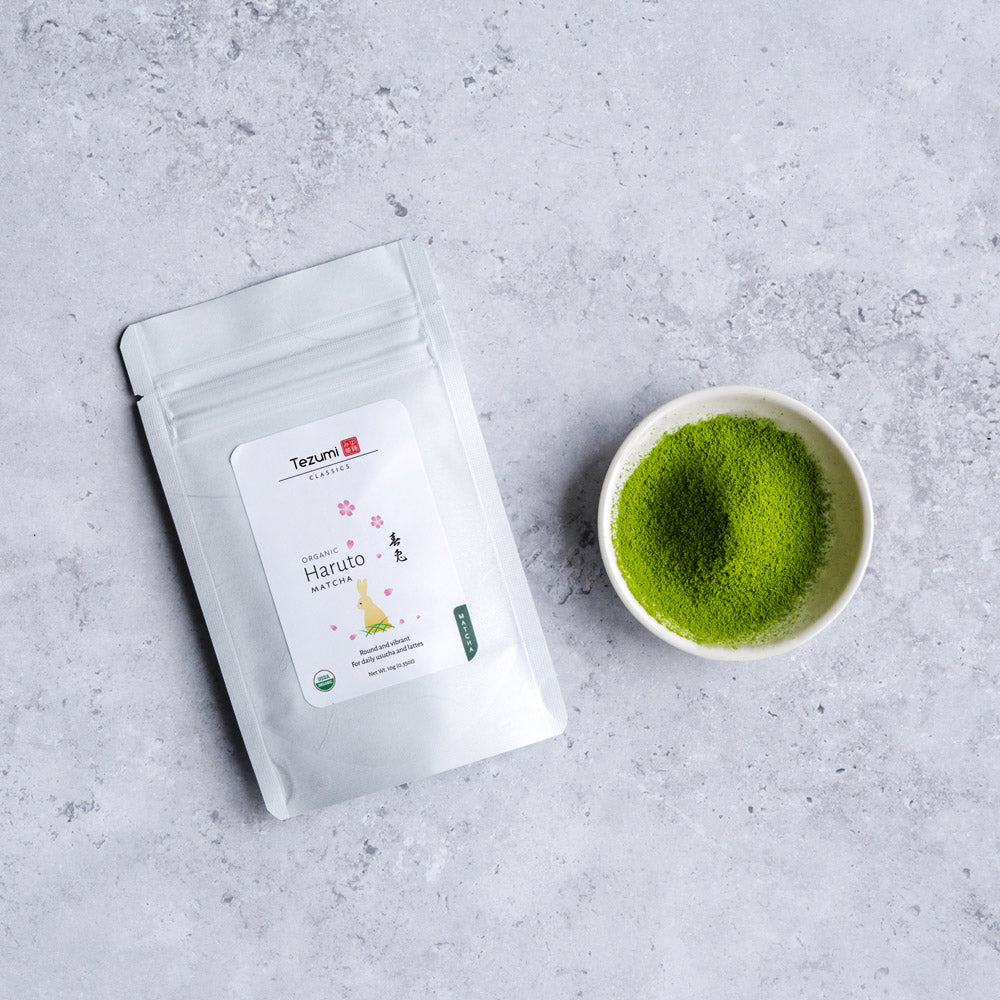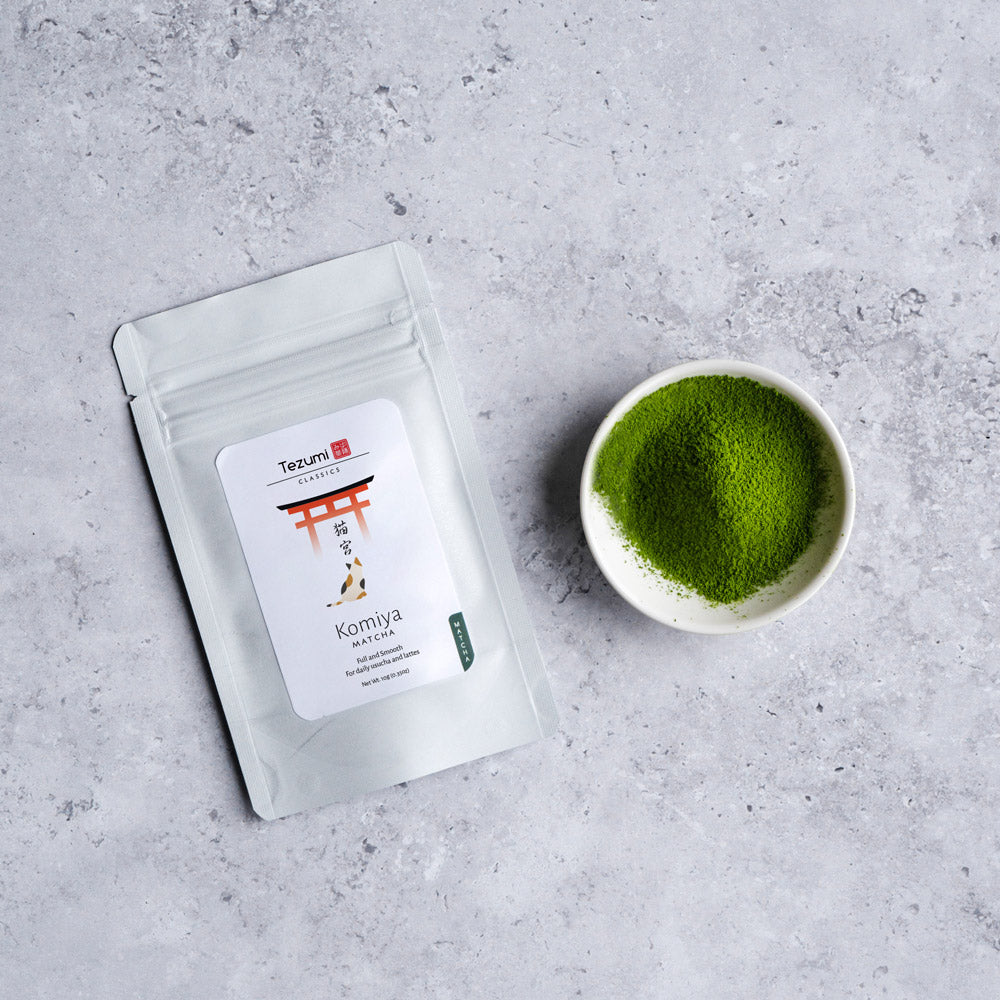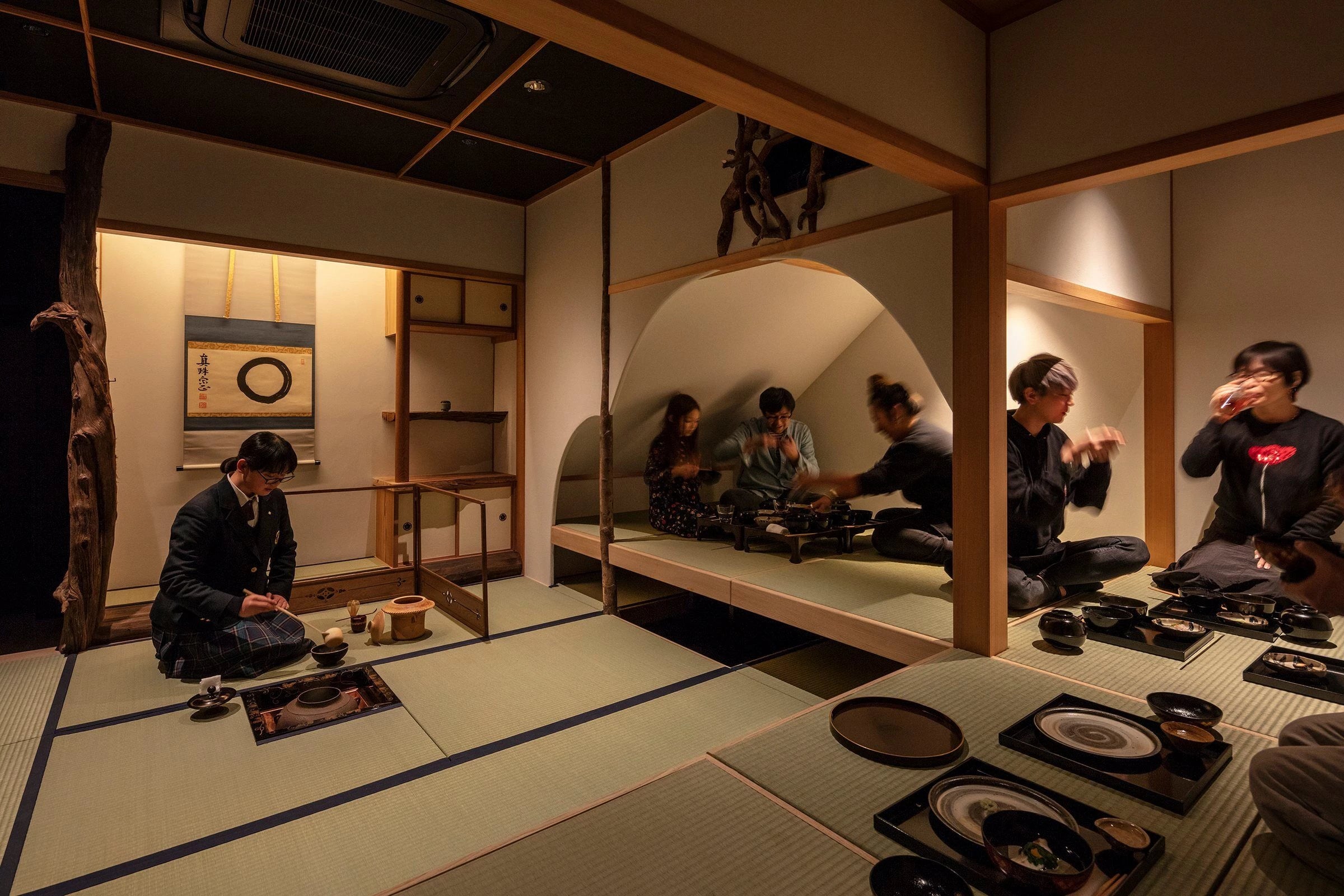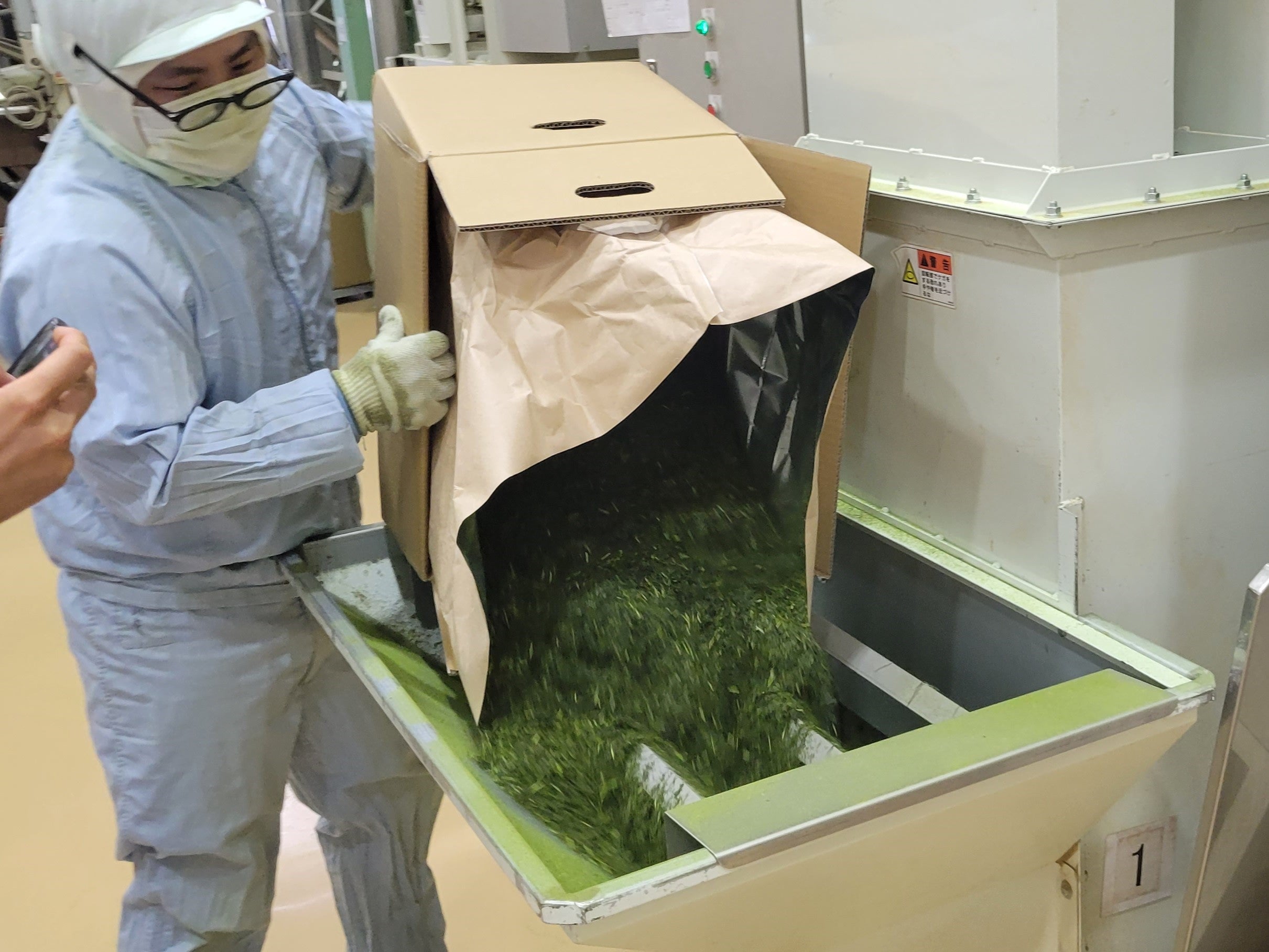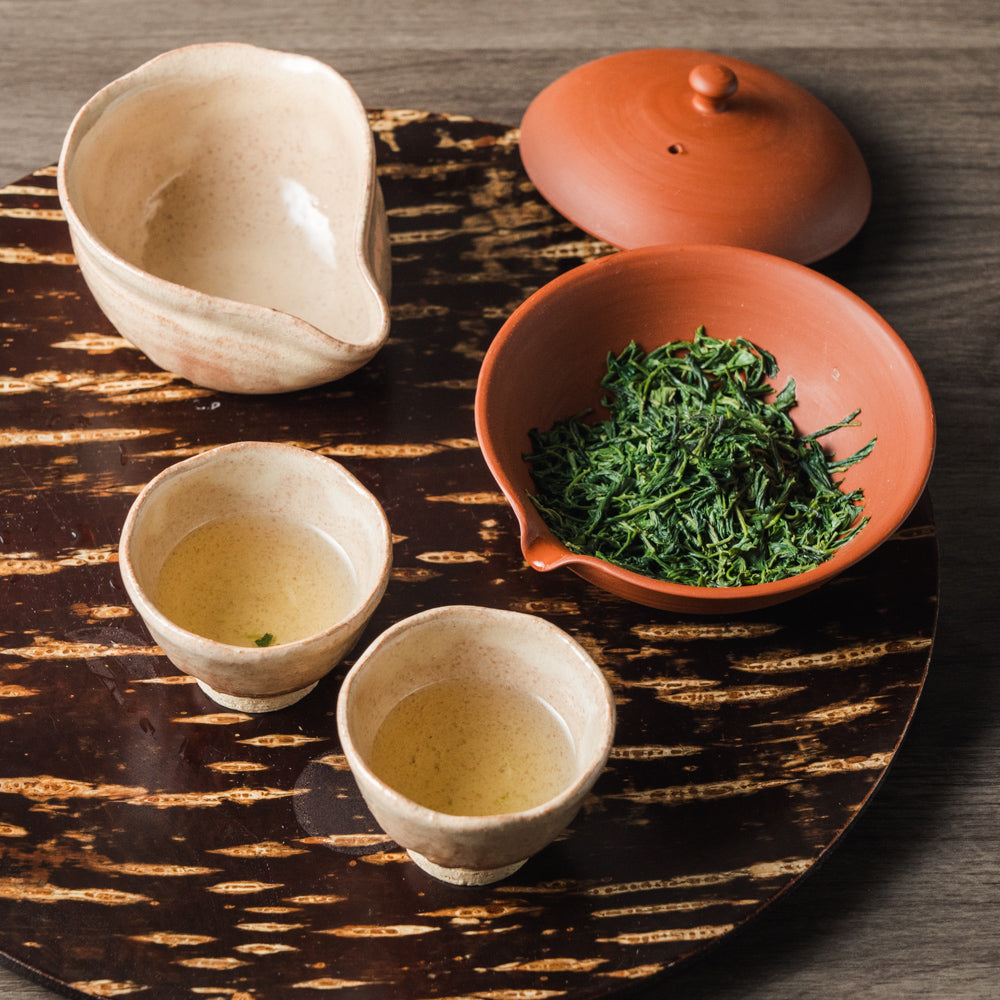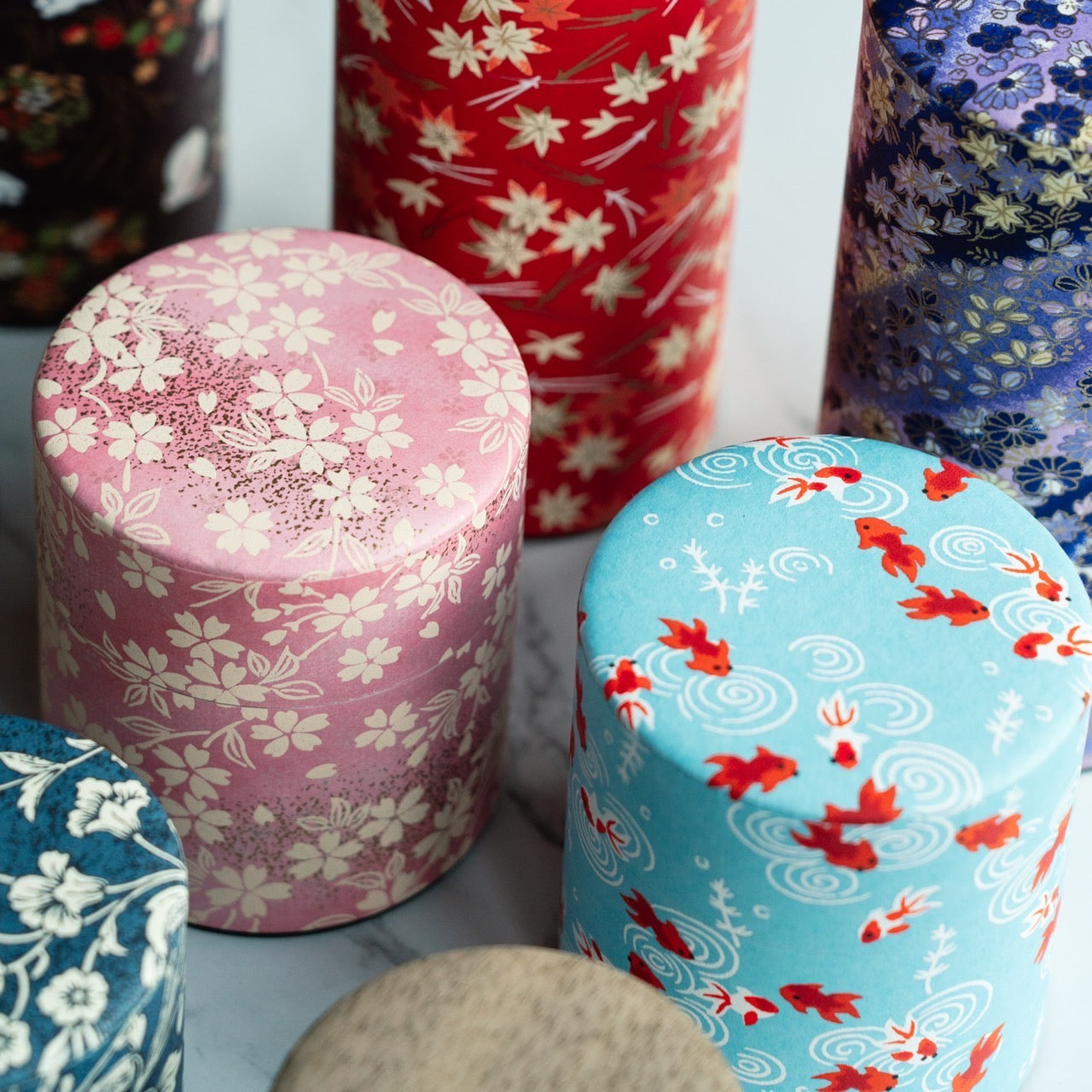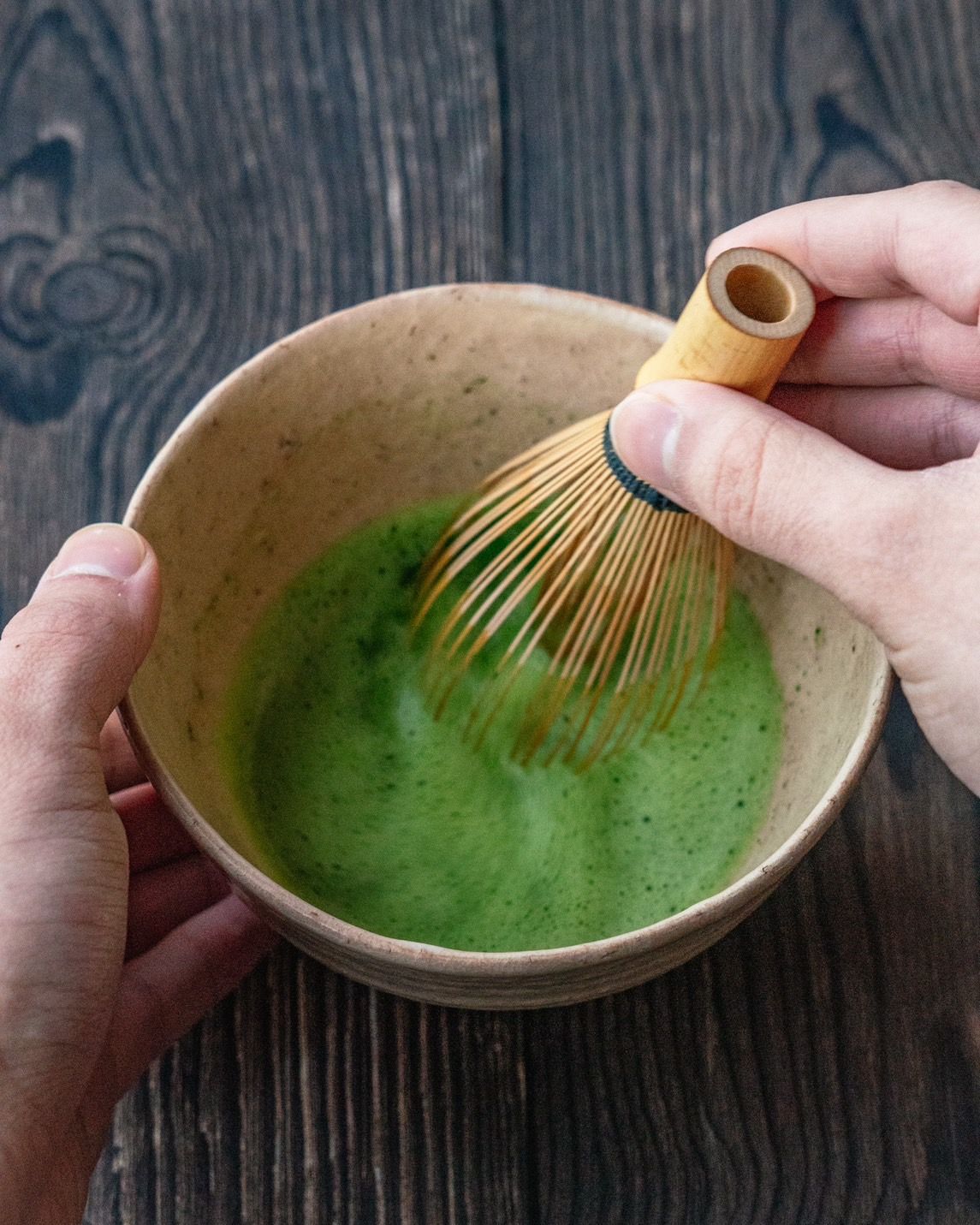This kutsu-gata Kuro-Oribe chawan was designed and produced as a collaboration between Tezumi and Hiroshige Katō of Kasen Kiln. Inspired by the shape and style of masterpiece Waraya chawan, each bowl was hand-built (手びねり - tebineri) and hand-carved (刳り抜き - kurinuki) into a delightfully playful kutsu-gata shape and hand-painted with an iron underglaze design which combines geometric patterns with naturalistic scrollwork. After glazing and firing, each bowl was soaked for two days in a solution called tochishibu (栃渋) which is made from acorn caps. The result is a staining effect which softens the white of the glaze, emphasizes the crazing and darkens the exposed clay.
Please note that due to the organic nature of hand-carving, glazing, and painting, there are variations between pieces, with each bowl being unique in shape and design. Five pieces are pictured above to display these natural variations.
Each chawan comes with its original kiribako (桐箱 - wooden paulownia box) signed by the artist, Hiroshige Katō (加藤裕重) of Kasen Kiln (喜多窯).
Hiroshige Katō is a 14th generation potter, and the 12th head of Kitagama/Kasen Kiln, based in the Akazu hills in Seto. In the early Edo period, his family was one of four protected by the Shogunate in order to fire tea ceremony utensils for Nagoya Castle. His family's kiln is the only remaining of those original four.
Hiroshige-san specializes in traditional Mino and Seto styles such as Shino and Oribe, as well as developing new styles and pursuing his own unique artistic expression.
Kuro-Oribe (黒織部 - Black Oribe) bowls were developed by the visionary chajin Furuta Oribe in the late 1500s/early 1600s. Their free-flowing paintings and playfully distorted shapes epitomise Oribe's aesthetic philosophy of hyouge (ひょうげ/剽げ/へうげ) which roughly translates to ‘playful’, ‘charming’, ‘jocular’, etc.
Although Ao-Oribe is the most popular style of Oribe ware today, Kuro-Oribe chawan actually make up the majority of the famous Oribe bowls from the late Sengoku and early Edo periods.
Oribe-yaki (織部焼) is a type of Japanese pottery known for its free flowing glazes and asymmetrical, hand-formed shapes. Dating in the late 16th century, Oribe ware takes its name from legendary tea master Furuta Oribe (古田 織部) who is believed to have played a large part in its development. Oribe wares are decorated with abstract designs and splashes of free-flowing vibrant green or deep black glaze. With these distorted shapes and novel decorations, Oribe-yaki exudes a charm that matches Furuta Oribe’s philosophy of hyouge (へうげ) or playfulness. One of the most popular styles of Oribe ware is Ao-Oribe or Green Oribe, which is decorated with geometric patterns painted with an iron glaze and then partially covered in a vibrant green copper-sulfate glaze which contrasts against the light background.
Dimensions:
12.5cm (4.9in) - width
11cm (4.3in) - height
250ml - capacity
Condition: New
This Japanese item ships from the United States.


